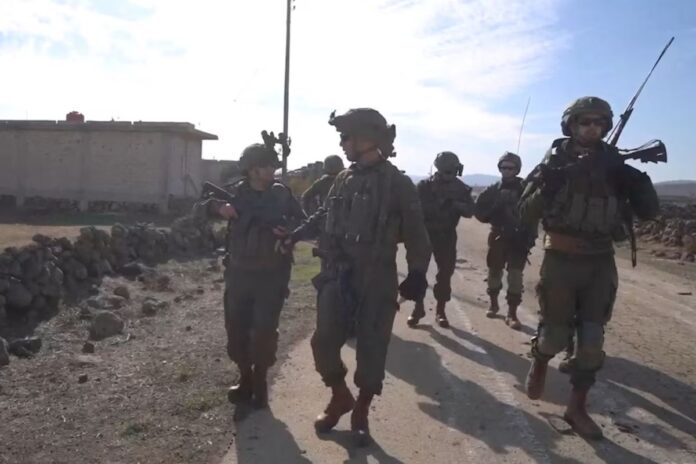In a dramatic escalation of military activity, Israel has launched over 350 airstrikes across Syria in just 48 hours. The attacks targeted a wide array of military assets, including airfields, missile depots, and naval vessels, crippling Syria’s defense capabilities. Israeli officials justified the strikes as a defensive measure to prevent advanced weaponry from falling into extremist hands, following the collapse of the Assad regime.
“We have no intention to meddle in Syria’s internal affairs, but we certainly intend to do whatever is needed to guarantee our security,” declared Israeli Prime Minister Benjamin Netanyahu on Tuesday. He emphasized that the strikes aimed to prevent extremist factions like Hayat Tahrir al-Sham (HTS), historically linked to Al Qaeda, from gaining access to Syria’s strategic weapons.
Among the most devastating blows was the destruction of Syria’s naval fleet. Missile ships from the Israeli navy targeted ports in Al-Bayda and Latakia, reportedly sinking multiple vessels. “The destruction of the Syrian Navy is complete,” Defense Minister Israel Katz announced.
Israel’s Entry into the Golan Heights Buffer Zone
For the first time in 50 years, Israeli ground forces entered the demilitarized buffer zone in the Golan Heights. Established after the 1973 Middle East war, this 155-square-mile area had been patrolled by United Nations forces until recent turmoil led Syrian troops to abandon their posts. Israeli officials described the incursion as a “limited and temporary” operation aimed at creating a “defense zone free of weapons and terror threats in southern Syria.”
However, the move sparked widespread international condemnation. Egypt accused Israel of violating international law, and Turkey labeled the incursion as an act of occupation. The United Nations echoed these sentiments, with spokesperson Stéphane Dujarric stating that Israel’s actions breached the 1974 disengagement agreement.
“This needs to stop,” urged Geir Pedersen, the UN’s special envoy for Syria, warning that external military actions could derail Syria’s fragile political transition.
Impact on Syria and Regional Dynamics
The airstrikes and ground operations have left Syria’s military infrastructure in shambles, exacerbating the country’s vulnerabilities during its political transition. Mohammed al-Bashir, head of the transitional cabinet formed by rebel factions, acknowledged the formidable challenges ahead. “The transitional period will last until March,” al-Bashir stated, outlining plans for Syria’s new governance.
Despite Israeli military assurances, speculation about deeper territorial ambitions persists. “Reports circulating about Israeli tanks advancing toward Damascus are false,” clarified Lt. Col. Nadav Shoshani, an Israeli military spokesperson. He insisted that Israeli forces remain within the buffer zone and “several other places necessary for its defense.”
Strategic Goals: Security and Power Projection
Israel’s military actions are not solely about immediate security concerns. By targeting Iranian-linked infrastructure and Hezbollah supply lines, Israel aims to curb the resurgence of adversarial forces in the region. Netanyahu issued a stern warning to Syria’s new government: “If this regime allows Iran to reestablish itself in Syria, we will respond forcefully and exact a heavy price.”
Beyond neutralizing potential threats, the strikes also serve as a demonstration of Israel’s military prowess. Analysts suggest that these operations are a calculated message to regional adversaries and allies alike, showcasing Israel’s capacity to act decisively in securing its interests.
International Reactions
Israel’s aggressive military campaign has drawn sharp criticism from global leaders. Egypt condemned the incursion as an exploitation of Syria’s instability, while Turkey accused Israel of acting as an occupier. The United Nations called for immediate restraint, warning of the long-term consequences of external interventions.
Amid mounting international pressure, Israel faces the dual challenge of maintaining its security while navigating the complex web of regional and global diplomacy.
The Road Ahead
As Syria grapples with its post-Assad political transition, the ramifications of Israel’s actions will undoubtedly shape the region’s future dynamics. While Israel asserts that its operations are defensive in nature, the broader implications for regional stability remain uncertain.
With heightened tensions and widespread criticism, the question lingers: is Israel merely safeguarding its borders, or is this the prelude to a more extensive regional strategy?

